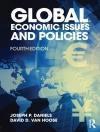In this far-reaching work, social ecologist and historian Murray Bookchin takes the reader on a voyage through the evolution of the city. Cities are not just monumental social and political facts, they are tremendous ecological facts as well. Far from seeing them as an inherent adversary of the natural world, though, Bookchin uncovers a hidden history of cities as “eco-communities” that fostered diversity and interconnection, living in balance with and awareness of nature. Just as ecosystems rely on participation and mutualism, so must cities—and their citizens—rediscover these qualities, establishing harmonious, ethical social relations as a basis for a healthy ecological relationship to the natural world.
Published for the one hundredth anniversary of Murray Bookchin’s birth, Urbanization Without Cities is the first in a series of his books that AK Press is reprinting and bringing to a new audience.
Spis treści
Preface
Introduction
APPENDIX The Meaning of Confederalism
Notes
Index
O autorze
Sixtine van Outryve d’Ydewalle is a Ph D researcher in political and legal theory at UCLouvain in Belgium. Her research focuses on the theory and practice of direct democracy in a communalist perspective, more specifically on social movements struggling for local self-government in France and North America.












